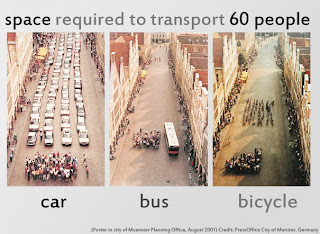Fatma is a nurse who's supporting a group of displaced people who are fleeing a militia that attacked them and burnt down their villages. Fatma has been travelling for days into the countryside in a Toyota Landcruiser to find this group and care for them.
Before she left the capital, she was given a handful of cheap mobile phones. The IT officer had paired them all, so they could network with each other without signal. The standard patient tracking app has been installed.
There is no electricity grid in the camp. There is no mobile signal or running water. The nearest well is two hours away.
When Fatma gets to the camp she hands one of her phones in ‘setup’ mode to each healthcare worker (HCW). They enter their names and register their fingerprints and PINs. From then on, each HCW can use any phone.
The HCWs walk through the massive camp, gathering survey data. New arrivals, how many families, how many children. Pregnant women, sick people. The workers take details of complaints from anyone who approaches them.
The HCWs cover one row of tents each, and the phones synchronise all the data between each other. Occasionally they lose sight of each other and lose signal too.
At mid-day they eat together and one of them, Rashid, returns to the mobile clinic that Fatma’s set up. Rashid plugs his phone into a solar panel to charge, picks up a replacement, and goes back to his colleagues.
When Rashid and his handset came in range of Fatma, all his data and his colleagues data from the other phones was synched with hers. After he leaves, she scrolls through the data and prioritises cases.
The syncing was so quick and automatic, they just assumed it was happening. Rashid spent less than 10 minutes in the clinic to get some water and supplies, and doesn't even glance at his new phone until he's walking back out again, to check the time.
Each night she takes one phone and puts in the glove compartment of the jeep, turned off, and brings back the one she left the previous night. That is her off-site backup.
The next week an obstetrician and a midwife arrive in another truck. Among all their supplies they brought more handsets. Fatma adds them as caseworkers to the group database, where they can see only their patient's data. If an HCW had to borrow their phone and logged in with their PIN, of course they'd see only the camp survey data.
The week after, a doctor from another organisation visits the camp for a week. She doesn't have a device that's part of the cluster, but she connects to their phone's collective WiFi network, and from there she uses the login she was given on the webapp version of the patient tracking system. It looks identical to the normal app and one of the HCWs shows her how to use it.
A month later someone else arrives with a satellite dish and a diesel generator. Now they have Internet access. Fatma's chats on Signal all come alive and update. One of the clinic phones is nominated by the cluster to upload an encrypted backup to a server in the capital. From now on it will try and do this every night. It also uploads anonymised and aggregate data to the main headquarters of Fatma's employer in a neighboring country.
A separate phone downloads the latest security patches and an update to the patient tracking app. The updates spread throughout the cluster of devices and they reboot themselves in phases overnight.
A week later a rumour reaches the camp that the militia has moved closer to them. Within a few days, a third of the camp has fled. Fatma promotes Rashid to cluster administrator, gives him a small box full of phones and a solar panel and he leaves the camp in a truck to follow them.
A week later, the camp is empty and the militia are two days away. Fatma left as well and has met up with Rashid in the new camp. Their databases merge and Rashid’s cluster now has missing patient data from people who had examinations after he left, but who then fled to the camp he now works at.
After three months, Fatma's tour is done and she's due some R&R. She leaves in another truck to start the journety back to the capital for a debrief before she flies home, with a phone in her pocket. Once it gets in range of a mobile signal, she calls her partner and leaves a message on their voicemail to say she's coming home.
TECHNOLOGY that you can't see directly see in this short story:
* WiFi mesh networks and VPNS
* Encrypted, sharded & multi-master replicated databases, built on CRDTs or similar things.
* Stock Linux, capable of hosting a multi-tiered application, using all the capabilities of a normal mobile handset incl. SMS & voice calls
* Load-balanced application - level adaptive clustering.
* P2P package/app distribution and rolling updates with boot assessment.
Written in response to this question on HN.
(Some of the) things you can't do on stock Androids that block this story from happening:
* Hosting servers (incl. HTTPS, <port 1024) on Android phones
* Mesh networking, multi-hop routing is not allowed, WiFi-Aware doesn't count because of this. batman-adv on a handset would count.
How it works in real life:
Paper. Whiteboards. Excel if you're lucky. There's more likely to be mobile signal. Long nights transcribing stuff into slow webapps via a VSAT connection.
Bigger facilities will have better tech.
What's also not shown is Fatma's team: logisticians, watsans, health promotion/community outreach.





